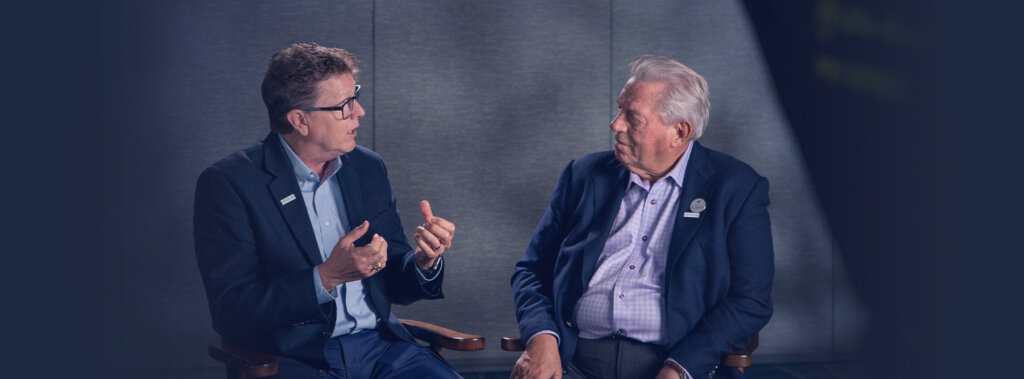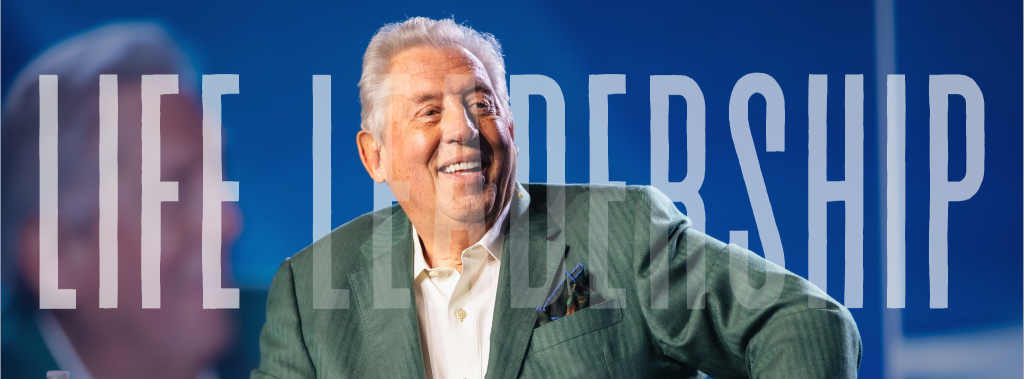9 Pieces of Advice I Want to Offer to Generation Z

I recently met with a group of high school seniors. Each of them was 18 years old and preparing to enter college and career. These students met to seek advice about life after graduation. I was happy to oblige. I loved my time with them and decided to share with you some of the most relevant action steps we discussed. The following list summarizes the tips I offered these teens in Generation Z. Each piece of advice stems from research on the needs of today’s young generation. They may be helpful for the young people in your life.
Setting Up the Next Generation for Success
1. TAKE A RISK. DON’T BE AFRAID OF MISTAKES OR FAILURE.
Today’s student has been raised in a “safety first,” risk-averse culture. Parents have been afraid for them and educators have inflated grades reinforcing how important it is to avoid failure. This is not preparing them for life. Teens not only suffer from FOMO (Fear Of Missing Out) but FOMU (Fear Of Messing Up). This may stem from their concern that if they make a mistake, someone is sure to capture it on their smart phone, post the video on YouTube, and this “fail” will follow them for years. Risk-seeking behaviors are down even though more than 70 percent of teens today want to be an entrepreneur. A Babson College survey found that 41% of 25- to 34-year-olds cite “fear of failure” as their biggest roadblock to starting a business, up from 24% in 2001. We need to encourage them to not fear failing and that their greatest growth will likely follow mistakes. In fact, we must affirm that failing early is almost always a key to success.
2. MAKE YOUR SEARCHES REDEMPTIVE, NOT JUST ENTERTAINING.
Generation Z members have grown up with a Google Reflex. They ask Siri, Alexa and Google questions kids used to ask mom and dad. Most of the searches in the student group I visited with acknowledged their searches were mostly for fun. Places like memes, Pinterest, Tik Tok, YouTube and Instagram are providing hours of amusement but not aiding their growth and education. It won’t surprise you that the top online searches for Gen. Z are for entertainment. Almost a third (32%) of Gen Z users want to start their day with entertainment, compared to 21% of millennials. While there’s nothing wrong with that, we must nudge them toward the habit of searching to solve problems. Constructive searches can be a habit instead of reacting to push notifications that pop up. I believe they can take back control of their lives by choosing to delete or unsubscribe to most of these pop-ups and become intentional about their searches.
3. LEARN THE SATISFACTION OF “JOMO.”
Years ago, Patrick McGinnis coined the term: FOMO. I’ve met an increasing number of teens and college students who’ve chosen a different lifestyle: JOMO, or the Joy Of Missing Out. They are getting off most of their social media platforms they joined years earlier and they broke free from the “comparison trap.” The joy of missing out is about embracing simplicity and being grateful for what you possess and enjoy; it’s about being fully present with the people next to you, not worrying about what you’re missing out on: someone’s “best vacation ever” or that tasty latte they photographed and posted. The students who choose JOMO enjoy better peace of mind, satisfaction and even deeper happiness because it’s about focusing on what you have, not what you don’t. Disappointment decreases; satisfaction increases. In a sense, this is a plea for them to simplify their life, to cut down on the noise and clutter for better peace of mind.
4. BUILD STRONG INTERPERSONAL SKILLS TO DIFFERENTIATE YOURSELF.
When employers I know interview recently graduated young professionals, they often share the same conclusion: those young adults are great with screens, but not as comfortable with in-person interactions. The Pew Research Center reports that the average teenager spends the equivalent of a full-time job on portable devices every day. It’s their natural habitat. During the pandemic when screen time increased and much of their education was virtual, their ability to read body language and facial expressions got even less exercise. Learning to understand verbal, non-verbal and paraverbal communication decreased. I believe when Gen Zers intentionally develop social and emotional intelligence they stand out from their peers, as self-confidence differentiates them even during the early interviews. I suggest young team members match screen hours with face-to-face time to build both tech and relational skills.
5. MASTER FOCUS AND FORETHOUGHT.
It’s been difficult to plan ahead for the last two years. Who knows what reality will look like even six months from now in the aftermath of a pandemic? During 2020, our organization worked from a three-month budget, not an annual budget. Now, it’s time to master the art of seeing ahead and laying plans for best-case and worst-case scenarios. I believe the further out people can see, the better the decision they will make today. Sadly, the pandemic has taken its toll. A Barna Research study found that the majority of Gen Zers tend to “expect the worst in situations.” While this is terribly sad to me, it makes sense. Consider the last two years for a young adult who has graduated. None of what they’d planned and hoped for has played out. We must model strategic planning for them and teach them how to see ahead and lay plans. While distraction rules the day, focus, foresight and planning skills will need to be cultivated.
6. DON’T WAIT FOR SOMEONE ELSE TO DO SOMETHING.
As I’ve already stated, data shows that Generation Z struggles with depression. Data shows that depression is often suppressed anger. Certainly not in every case, but in many. When young adults feel emotionally paralyzed, they get stuck. When they feel they have agency, they act. Whether we like them or not, their protests for racial equality, climate change or gun control were mostly teens and young adults doing something about the injustices they observe. It is good behavioral science for them to manage their anger by doing something constructive with it. Generation Z enjoys a higher sense of empowerment because they’ve grown up with a smart phone and get instant answers to their questions. They have a Google reflex. We must listen to them, empathize with them, then guide them to take positive action about the problems they see. When they deconstruct traditional institutions (government, education, law enforcement, business and even the church) we must help them form a positive reconstruction plan.
7. LIMIT YOURSELF TO TWO HOURS A DAY ON SOCIAL MEDIA.
Two years after the COVID-19 pandemic began in the United States, Gen Zers, ranging from middle school students to young professionals, report higher rates of anxiety, depression, and distress than any other age group. More than nine in 10 Gen Z adults (91 percent) said they have experienced at least one physical or emotional symptom because of stress, such as feeling depressed or sad (58 percent) or lacking interest, motivation or energy (55 percent). Only half of all Gen Zers feel like they do enough to manage their stress. Part of the problem is they were ambushed by the effects of social media. This information is pushed at them at a rate that overwhelms most college age young adults. One clear action step is to reduce the hours spent on those platforms. Research shows that a teen who spends less than two hours a day on social media is measurably less vulnerable to anxiety and depression. Those who spend more than two hours are more vulnerable to those symptoms. This is a tangible step anyone can take.
8. GET UP AND STAY ACTIVE. MAKE SURE YOU’RE MOVING DAILY.
Gen Zers live more sedate lives than previous youth generations, surpassed only by the Alpha Generation following them. Hours are spent seated in front of video games, on smart phones or binging on YouTube videos or Netflix. While these provide entertainment, humans are made for movement. When we exercise, our body releases chemicals called endorphins, which interact with the receptors in our brain that reduce your perception of pain. Endorphins also trigger a positive feeling in the body, similar to that of morphine. In response, our negative emotions decline as we move about. This requires a literal “action plan” where instead of reacting to push notifications each day, Gen Z members schedule time to get outside or to work out inside exercising. This can be as simple as shooting hoops while reviewing for an exam, walking the dog, or even playing virtual reality games that force them to move like tennis or soccer.
9. EARN THE RIGHT TO SHARE YOUR OPINION.
As Generation Z enters the workforce, employers are finding they not only want change, they want reinvention. Five supervisors shared with me that on week one, recently graduated team members are audaciously telling them how they are doing things “wrong” and what they could do to make it better. While I absolutely love the idea of improvement, advice from young and inexperienced team members goes down better if they first listen and learn what the team is doing, how they do it and why they do it. Once a Gen Zer demonstrates this kind of humility and hunger to learn, they have every right and responsibility to offer ideas for making things better. Too many bosses report an arrogant and cocky attitude in young team members who come with no experience in the industry. This is an unnecessary hangup that young team members can avoid. My advice to Gen Z? Stay hungry. Stay humble. Keep hustling.
The good news?
None of these nine pieces of advice require us or Generation Z to be rocket scientists. They do, however, require all of us to be intentional. We must play offense, not defense, with our time. I once had a college-age intern who asked me for a key to our building, on week two of his internship. I assumed I was encountering another cocky, young student who thought they deserved more than they did. I was pleasantly surprised when I asked why he wanted a key. He responded, “I love my work here. I often arrive earlier than anyone else and the door’s locked. Rather than wait, I’d like to get started on the projects I’ve been given, complete them and have time to help someone else.” This intern not only got a key instantly, he won my heart.
Looking for ways to empower and inspire personal growth and development in the next generation?
Speaker, author, and leadership expert Tim Elmore has devoted his life to developing leaders that add value to others both personally and professionally. As CEO of the non-profit organization Growing Leaders and in other roles of influence, he has been able to train more than 500,000 leaders in hundreds of organizations worldwide. He is also the world’s leading expert on the emerging generation and generational diversity. His new book, A New Kind of Diversity, seeks to close the generational gap and leverage differences among generations as strengths instead of weaknesses – pre-order your copy today.
Join Tim and John Maxwell for a day of discussing generational diversity!
On October 25 at 12 PM ET, Tim Elmore is hosting a book launch for A New Kind of Diversity. He’ll be joined by John Maxwell (and some other special guests!), so don’t miss out! Attendance is free and you can join here.
More Articles

6 Ways Great Leaders Can Cultivate Gratitude

Life Leadership: 3 Ways to Excel Outside the Workplace









Be the first to comment on "9 Pieces of Advice I Want to Offer to Generation Z"